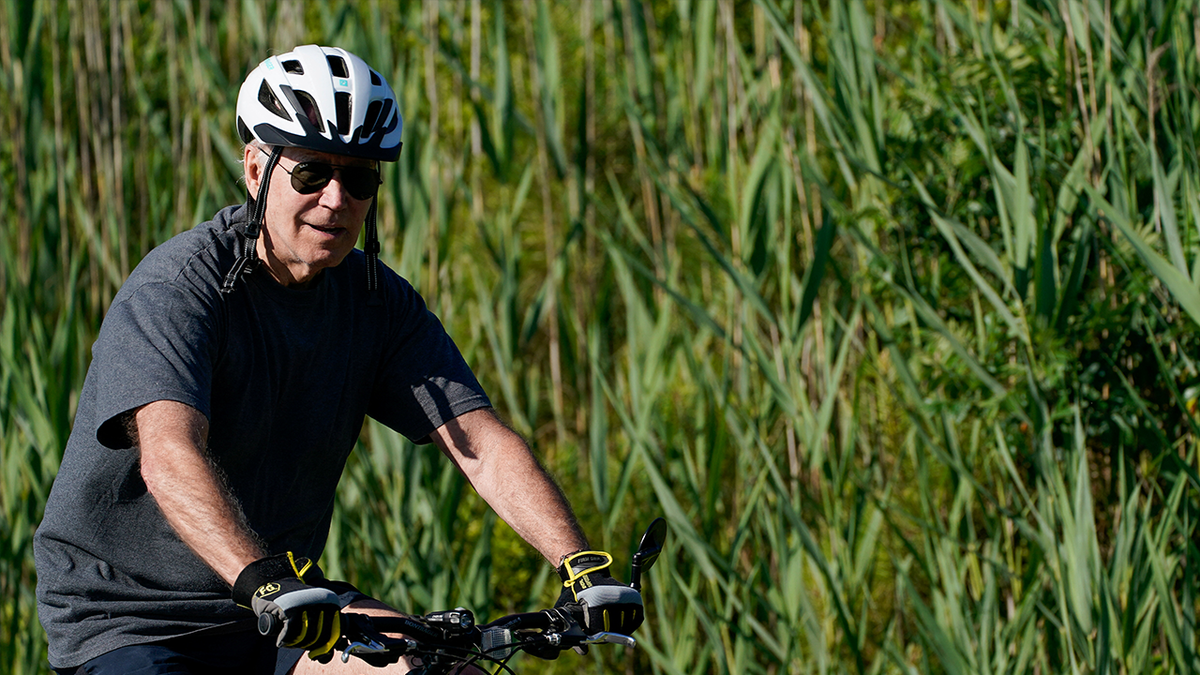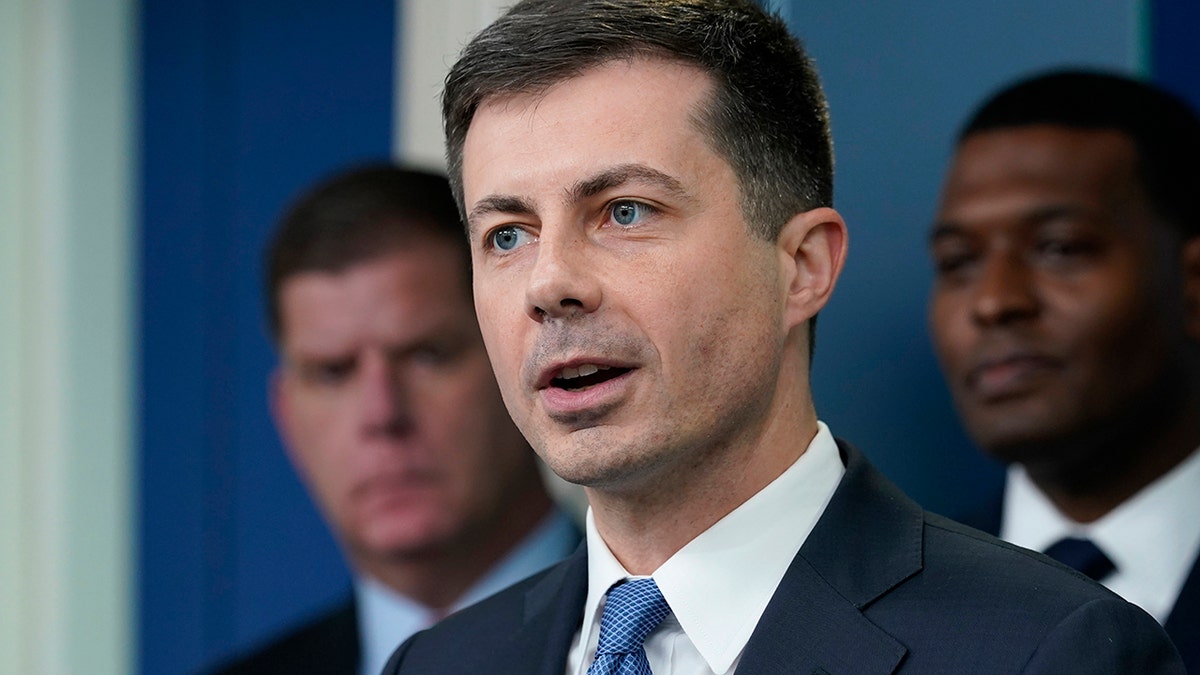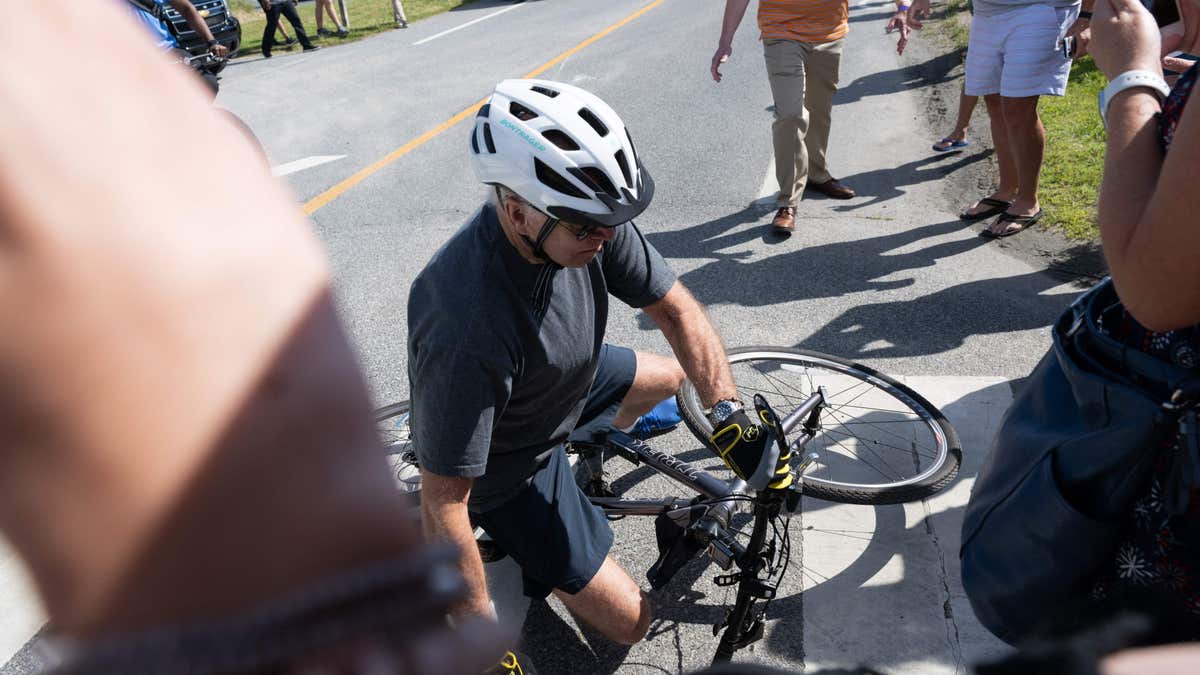Jimmy Failla roasts claim that 'short people' are better for the environment: New year, same old junk
'Fox Across America' host Jimmy Failla discusses Equinox gyms' move to not accept new members on January first and a New York Times essay claiming there's 'never been a better time to be short.'
If the Biden administration gets its way, carbon emissions emanating from transportation sources will be near zero by 2050 in part because people will be doing a lot less driving and a lot more walking and biking.
The Departments of Energy, Transportation and Housing and Urban Development, along with the Environmental Protection Agency, released a "blueprint to decarbonize America’s transportation sector." While that blueprint said most environmental benefits will come from spending billions of dollars on electric vehicles that reduce greenhouse gas (GHG) emissions, it also called for a sweeping effort to redesign communities all around the country so that walking and biking become more viable options.
The plan called for more "investments" in walking and biking infrastructure and said land-use planning will "tackle the problem at the root and make it appealing and practical for people to take fewer or shorter trips, or to walk or bike on those trips where that is feasible."

President Biden's administration wants people to bike and walk more in order to reduce transportation-related greenhouse gas emissions to zero by 2050. (REUTERS/Elizabeth Frantz)
It anticipated more spending on "green infrastructure – trees and planted areas along streets, parking lots, and other paved areas," which it said "makes walking and biking more appealing." It also called for re-imagining the way cities and towns are laid out in order to make walking a more popular option.
This new kind of urban planning would "increase convenience by supporting community design and land-use planning at the local and regional levels that ensure that job centers, shopping, schools, entertainment, and essential services are strategically located near where people live to reduce commute burdens, improve walkability and bikeability, and improve quality of life... Because every hour we don’t spend sitting in traffic is an hour we can spend focused on the things and the people we love, all while reducing GHG emissions."
GREEN ENERGY PROJECTS FACE STARK ENVIRONMENTAL, LOCAL OPPOSITION NATIONWIDE

Transportation Secretary Pete Buttigieg is backing a plan that calls for more walking and biking in order to cut emissions from cars, buses and rail. (AP Photo/Susan Walsh, File)
One problem with today’s communities, the report said, is that "homes, workplaces, and services are often located far apart from one another." It said the "spatial mismatch" between jobs, housing and services is "especially pronounced in disadvantaged communities."
"The design of our cities, towns, suburbs, and neighborhoods, and investments in transportation infrastructure like highways, streets, bike lanes, and railways, heavily influence travel behavior and mode choices, which in turn impacts total miles traveled and resulting emissions," the report said. "Decisions that federal, regional, state, local, and Tribal governments have made — including ones made decades ago — have shaped our current transportation landscape, where reliance on driving, increased traffic, congestion, and associated emissions are accepted as norms."
To fix those problems, the report called for what it called "equitable transit-oriented development (ETOD)." This mode of development involves making walking and biking "more viable."
FORMER KEYSTONE PIPELINE WORKER RIPS BIDEN AFTER COMMENTS ON OIL PRODUCTION

President Biden fell off his bike over the summer and was not hurt. (Photo by SAUL LOEB / AFP)
"ETOD supports a walkable, mixed use development and transit lifestyle and meets the needs of existing businesses and consumers, while avoiding displacement of local residents and ensuring an adequate mix of affordable and market rate housing," it said.
This sort of policy approach would make walking and biking "easier, safe, and more convenient." The report added that fuel savings from more walking and biking would save an estimated $3.3 billion in fuel savings each year.
CLICK HERE TO GET THE FOX NEWS APP
The agencies involved in the project said the blueprint would be followed by "more detailed sector-specific action plans" to create a "comprehensive suite of strategies" aimed at getting to a zero-emissions transportation sector by 2050.














































